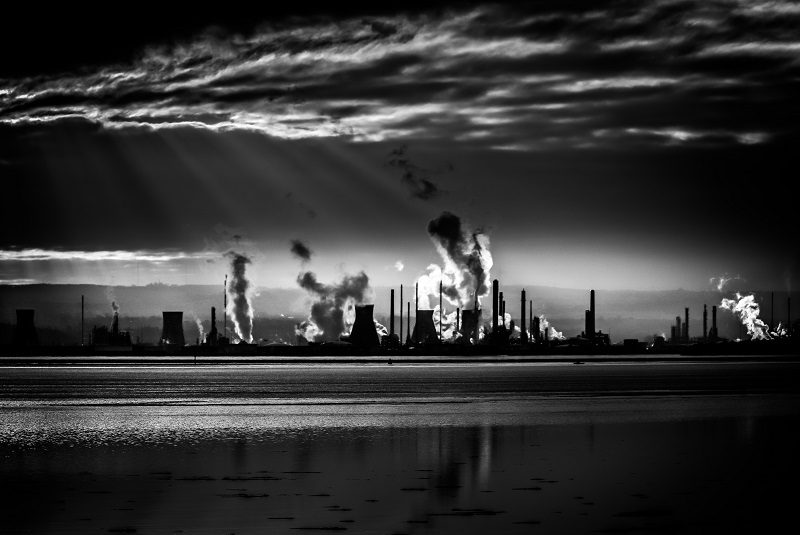Many industries are significantly more sustainable now compared to a decade or so ago. That’s evidence of the widespread trend towards an increased consciousness of resource usage, the planet’s long-term future, and related topics. Sustainability will also shape the future of the petrochemical industry. Investments in the area will help the sector remain resilient and adaptable in a society where the topic is increasingly a top-of-mind concern among consumers and business leaders.
The Future of the Petrochemical Industry Features Automation
Automation has quickly become a game-changer for many companies. It allows plant managers to get more done with fewer people, reduce mistakes, and minimize the dependence on manual processes.
A 2022 survey examined the extent to which automation affected various process industries, including petrochemicals. Feedback came from people in seven markets. When asked how much industrial automation would affect sustainability, 45 percent believed it would have a significant impact. Additionally, 51 percent of respondents have done so well with their industrial automation projects that they’ve scaled them across multiple facilities and business functions.
The deployment of remote operations technologies was also a major survey theme. The COVID-19 pandemic drove many initial investments in such options. However, many decision-makers have continued those efforts. More specifically, one-third of manufacturers have single sites they can operate remotely, while 31 percent have that capability at multiple locations.
Automation itself is not enough to guarantee more sustainable operations. However, those tasked with implementing it must specifically connect automation to sustainability. How could automating specific steps save resources? Keeping that question at the forefront of discussions related to any plans will increase the likelihood of sustainable results.
Better Sustainability Starts With Operational Changes
Research indicates petrochemical and chemical manufacturing collectively account for 3.6 percent of global emissions. However, lasting changes must happen within individual companies. That could involve using Internet of Things (IoT) sensors and digital platforms to gain more visibility over daily operations. People may also create digital twins to improve preparedness for specific scenarios and see the impact of operational adjustments before they happen.
However, sustainability can happen through low-tech changes, too. One option is to sell used equipment when appropriate. Besides increasing sustainability, that approach creates profit potential for a petrochemical company. Factors such as an item’s age and condition can dramatically affect its worth. Relatedly, if a particular piece of equipment is in high demand within the market, such circumstances raise its value and could make it easier to sell.
Transitioning to renewable energy within the petrochemical plant is another reasonably accessible option. A Spanish polycarbonate facility run by SABIC will become the world’s first large-scale chemical plant operating entirely on renewable power. A central part of the plan involves installing 263,000 solar panels through an electric company partnership. This effort supports SABIC’s intention to gradually ramp up the solar and wind power used across its global sites.
The future of the petrochemical industry relies on people being willing to do things differently to promote sustainability. Those changes can’t happen quickly, but it’ll be easier to achieve them when petrochemical plant leaders get input from people at every level of the organization. When employees believe sustainability starts with them, they’ll become more motivated and invested in the results.
Petrochemical Companies Must Increase Recycling Investments
As many parts of the world transition from single-use plastics, people have pressured petrochemical manufacturers to reduce their production of virgin plastics and prioritize recycled materials. The future of the petrochemical industry will also depend on how convincing company representatives can be when informing the public about their sustainability efforts.
An Accenture survey found 72 percent of consumers were not very or not at all confident in the information they got from chemical companies about sustainability. Another takeaway was that one in four respondents believed the businesses in that group were the least concerned about their impact on the environment. Perhaps that’s because the petrochemical industry was not an early adopter of many sustainable changes. That’s starting to change, but substantial room for improvement remains.
Recycling efforts are good examples of how petrochemical companies could do better by further reducing virgin plastic production. ExxonMobil set a 500,000-metric-ton capacity for advanced recycling by 2026. However, its virgin plastic production will total nearly 4 million metric tons by 2025. Similarly, CPChem set a target to create approximately 450,000 metric tons of circular polymers by 2030. However, petrochemical projects in the company’s pipeline will add nearly 1.6 million metric tons of virgin plastic capacity.
Petrochemical companies can start by partnering with waste management brands with a specific interest in recycling plastics. One planned plant in Belgium offers truly circular operations by recycling plastics to turn them into industrial chemicals. The facility will handle approximately 65,000 tonnes of end-of-life plastics per year.
Sustainability Has Many Possible Paths
While pondering the future of the petrochemical industry and the role sustainability plays in it, people must remember there’s no single sustainable action that guarantees certain results. Coverage from S&P Global indicated that biopolymer production accounted for more than 7.8 million metric tons per year of global capacity in 2021. The analysis pointed to rapid growth and the surprising number of established petrochemical companies increasing the use of biopolymers.
In another case, researchers based at the University of Minnesota Twin Cities created plant-based petroleum-like liquids that could eventually replace the fossil fuel-dependent methods used today.
One Chinese plant operated by petroleum company Sinopec uses a data-driven process control system to optimize operations. That approach enabled an 80 percent reduction in daily alarms and improved the facility’s maintenance strategy. Cutting down on unexpected events could translate to better sustainability, particularly since equipment problems can contribute to issues like leaks or increased emissions from faulty machinery.
An essential thing to keep in mind is that the future of the petrochemical industry will become more resilient through various efforts like these. That’s why people must take the time to customize plans to their companies’ capabilities and goals.
The Future of the Petrochemical Industry Includes Big Changes
Becoming a more sustainable company almost always requires doing things differently. Many people naturally resist change. They find it unsettling, even while recognizing its positive long-term effects. The ideas above illustrate how you could begin making your company and work more sustainable.
However, openness to change is one of the most important characteristics to demonstrate while moving ahead with such improvements. Changes aren’t always good, but people must be willing to explore them to understand the most viable ways to improve the petrochemical industry’s sustainability.
Emily Newton is the Editor-in-Chief of Revolutionized, an online magazine discussing the latest industry innovations and trends.






